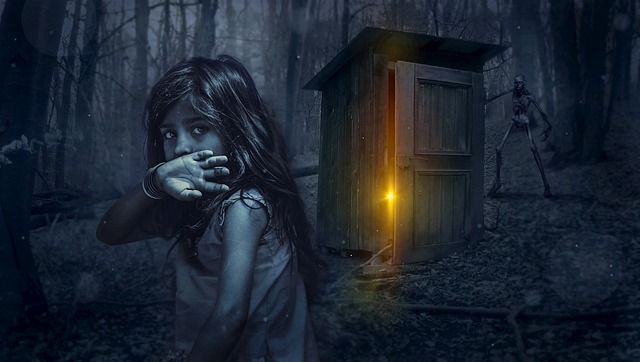Too Much Sleep Linked To Frequent Nightmares In REM Sleep

Many of us have had the occasional bad dream: we're naked in public; we're buried alive; or we're falling off the ledge of a building. Although these dreams are common, they become more so the longer we stay asleep. A recent study published in Social Psychiatry and Psychiatric Epidemiology suggests sleeping more than nine hours a night can increase the occurrence of nightmares.
Researchers at the University of Oxford found worrying about the future and getting too much sleep were the biggest causes of nightmares. They believe sleeping for a longer duration allowed for more rapid eye movement sleep (REM), which is the last stage in the sleep cycle where sleep and dreaming are more common. Nightmares are more likely to occur in the final third of the night due to the REM stage getting longer during each sleep with the final period lasting up to an hour.
Read More: The Science Of Nightmares
Aside from worrying and sleeping too much, depersonalization — feeling disconnected or detached from yourself — and paranoia were also linked to nightmares. This is because negative emotions and anxiety felt during the day can manifest itself in bad dreams. A 2015 study found 28 percent of people with severe depression experience frequent nightmares more than once a week, while 2 percent of people with no symptoms of depression had bad dreams.
Typically, research about nightmares has focused mostly on people with conditions like post-traumatic stress disorder (PTSD), since these dreams occur after upsetting events. In the new study, Stephanie Rek at the University of Oxford and her colleagues assessed over 840 participants for PTSD and asked about other aspects of their lives, including amounts of sleep, how much they drink, and how often they worry about things, specifically before bed. Participants also reported how many nightmares they had within the last two weeks.
Surprisingly, alcohol and exercise were not linked to nightmares. Previous research has shown alcohol can induce vivid dreaming, such as nightmares. When we go to sleep, the body will metabolize alcohol four or five hours later, which means REM sleep is no longer suppressed, and a "REM rebound" effect takes place. This means the brain will boost the duration of REM sleep and increase the ease of which we enter this stage as a response to previous REM suppression.
Rek told New Scientist: “It warrants more attention."
More research on the effects of oversleeping is starting to surface. Studies over the last decade show adults who usually sleep for less than 6 hours or more than 8, are at risk of dying earlier than those who sleep for between 6 and 8 hours. In other words, those who fall out of the 6-to-8-hour time frame tend to be at risk for several health conditions. The findings of the current study and previous studies go against conventional wisdom of getting 7 to 9 hours of sleep per night for adults.
The most recent National Sleep Foundation's annual poll found Americans are getting an average of seven hours of sleep, which is the median amount. Sleeping between 6 to 8 hours may potentially ward off conditions associated with too little or too much sleep. Managing 7 hours of sleep seems like a happy medium for most.
Read More: 3 Health Conditions Nightmares Can Predict
This means we'll probably have to skip out on hitting the snooze button to limit the amount of bad dreams we have in a night.
Source: Rek S, Sheaves B, and, Freeman D. Nightmares in the general population: identifying potential causal factors. Soc Psychiatry Psychiatr Epidemiol. 2017.
See Also:
The 10 Most Common Nightmares And What They Say About Your Life
Published by Medicaldaily.com



























